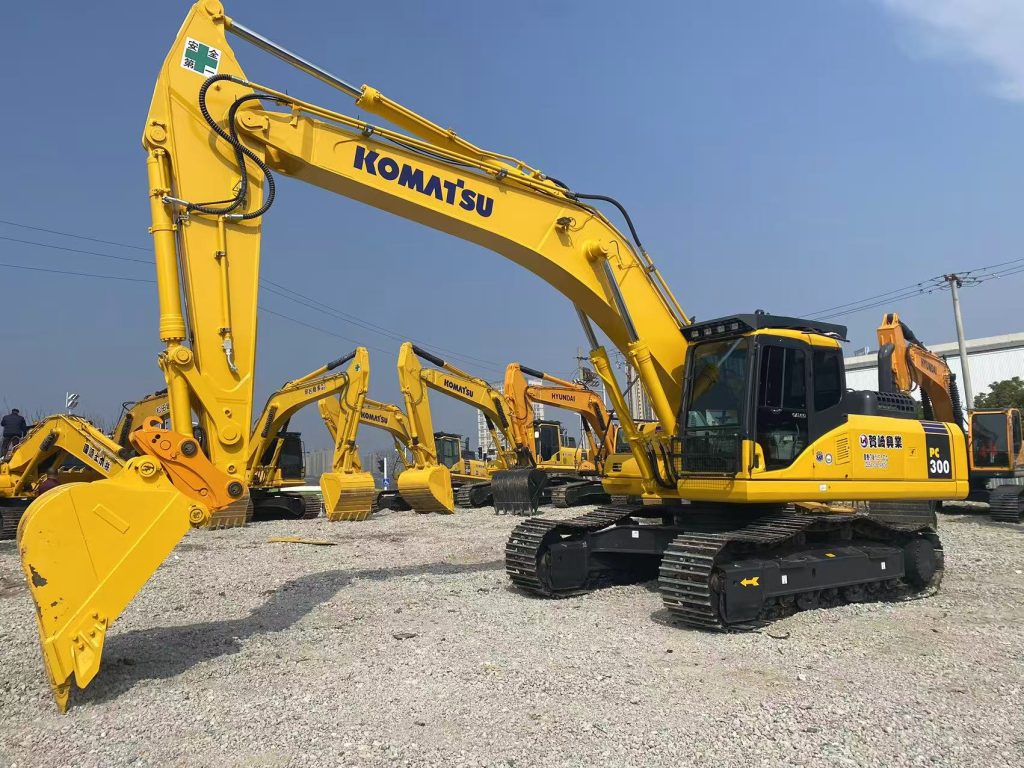When purchasing a second-hand excavator, although the price is more affordable, these machines, due to their age and prior use, are prone to some common maintenance problems. Understanding these issues and taking preventive measures can effectively avoid additional repair costs and downtime. Below are some common maintenance issues of well-maintained used excavators and how to prevent them:

1. Hydraulic System Failures
Common Issues: The hydraulic system is a core component of an excavator. If the second-hand excavator has been used for a long time, parts such as the hydraulic pump, hoses, and valves are prone to leaks, failures, or aging, which leads to reduced working efficiency and even damage to the machine.
How to Avoid: When purchasing, check for oil leaks in the hydraulic system, ensure that the hydraulic oil is clear, and inspect hoses for aging. Regularly change the hydraulic oil and check the sealing of hydraulic lines to prevent leaks.
2. Engine Problems
Common Issues: The engine of a second-hand excavator may experience power loss, increased fuel consumption, or overheating after long-term use. Poor maintenance or neglecting to service the engine can lead to costly overhauls.
How to Avoid: Before buying, conduct a thorough inspection of the engine to ensure there are no issues like oil burning, unusual noises, or overheating. Regularly replace the engine oil, air filters, and fuel filters to maintain proper engine operation.
3. Steering System Problems
Common Issues: The steering system in second-hand excavators may develop issues such as difficulty in operation, inaccurate direction control, or lack of smooth rotation due to wear or hydraulic problems.
How to Avoid: Regularly check the hydraulic pressure of the steering system to ensure that there are no leaks or worn-out components in the cylinders and hoses. Avoid excessive steering forces during operation to minimize wear and tear.
4. Track and Undercarriage Damage
Common Issues: Prolonged use or frequent travel over rough terrain can lead to track and undercarriage wear, or even breakage. Uneven force on the undercarriage may cause damage to the tracks or wheels.
How to Avoid: Regularly check the wear condition of the tracks and ensure proper track tension, neither too loose nor too tight. When purchasing, inspect the undercarriage components to ensure they are well-maintained.
5. Electrical System Failures
Common Issues: The electrical system in second-hand excavators, such as the starter, battery, and controllers, may experience issues like poor connections, low voltage, or faulty sensors due to prolonged use.
How to Avoid: Before purchasing, check the battery’s charge and connection status, ensuring the electrical lines are not corroded or aged. Regularly inspect the electrical system and clean battery terminals to prevent corrosion.
6. Cooling System Problems
Common Issues: A malfunctioning cooling system can cause the engine to overheat, especially when operating in high-temperature environments. If the radiator is clogged or the coolant level is insufficient, the excavator may overheat, affecting performance.
How to Avoid: Check the radiator for blockages and ensure the coolant level is adequate without leaks before purchasing. Regularly inspect the cooling system, clean the radiator, and replace the coolant as needed.
7. Work Equipment Failures
Common Issues: The excavator’s working equipment, such as the bucket, arm, and linkage, may experience wear due to long-term operation, leading to an inability to perform tasks correctly or causing severe damage.
How to Avoid: Before purchasing, check for wear in the working equipment and ensure all connections are lubricated and tightened. Regularly maintain the working equipment to ensure its structural integrity and stability.
Preventive Measures Summary:
- Pre-purchase Inspection: Ensure a comprehensive inspection before purchasing a second-hand excavator, including the engine, hydraulic system, electrical system, tracks, and other key components. It’s advisable to bring a professional technician or mechanic to help with the inspection.
- Regular Maintenance: Regularly change the oil, hydraulic oil, clean the cooling system, and inspect the electrical system to ensure that all components are working properly, extending the machine’s lifespan.
- Choose a Reputable Seller: Opt for Shanghai Yuqiang second-hand excavator dealers with a good reputation to ensure that the equipment has been properly inspected and maintained, avoiding frequent repairs after purchase.
- Avoid Overuse: During operation, avoid excessive workloads, especially in harsh environments, and give the machine proper breaks to maintain it in optimal working condition.
By following these preventive measures and maintenance practices, you can minimize the risk of common repair issues in second-hand excavators, ensuring the equipment runs efficiently and reducing overall operating costs.
